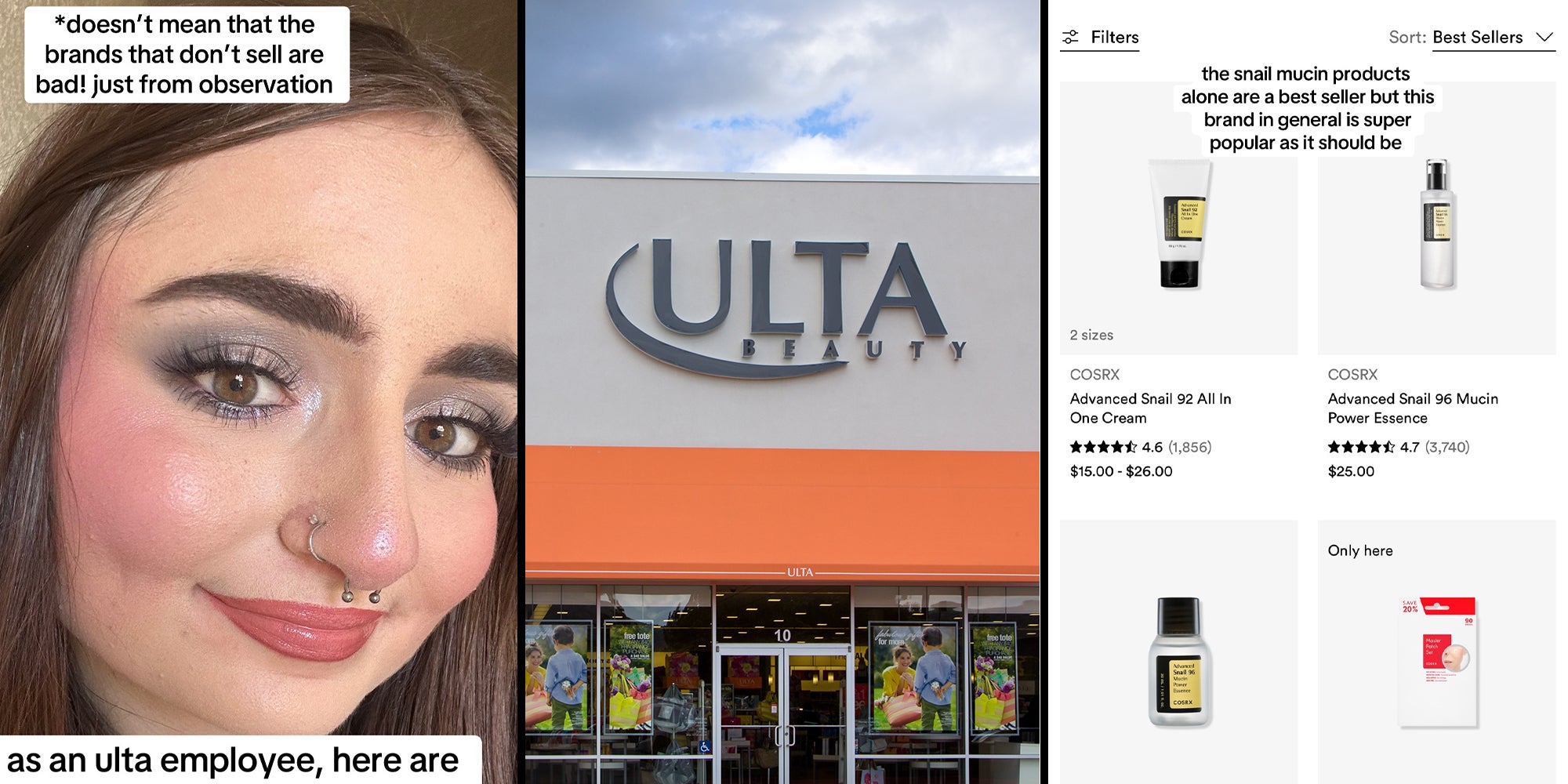Does Ulta Support Israel? Unveiling The Truth Behind The Beauty Giant's Stance
Does Ulta support Israel? This question has been on the minds of many shoppers and activists alike. The debate around corporate responsibility and political alignment has never been hotter, and Ulta Beauty finds itself right in the middle of it. As one of the largest beauty retailers in the United States, Ulta's stance on global issues can have a significant impact on its brand image and customer loyalty. So, let’s dive in and uncover the truth behind Ulta's connection to Israel.
In today's world, consumers are more informed and vocal than ever. They want to know where their favorite brands stand on social and political issues. Ulta Beauty, with its massive influence in the beauty industry, is no exception. The company's policies and partnerships often come under scrutiny, especially when it comes to sensitive topics like Israel-Palestine relations.
As we explore this topic, we'll break down Ulta's corporate stance, its partnerships, and the broader implications of its business practices. Whether you're a loyal Ulta customer or simply curious about the intersection of beauty and politics, this article aims to provide clarity and insights you won't find elsewhere.
Read also:Jenny Mollen Net Worth A Deep Dive Into Her Career Life And Financial Success
Here's a quick overview of what we'll cover:
- Ulta's Corporate Stance on Global Issues
- Does Ulta Support Israel? Analyzing the Evidence
- Ulta's Partnerships and Supply Chain
- Customer Sentiment and Activism
- What the Experts Say
- Steps Ulta Can Take Moving Forward
Ulta's Corporate Stance on Global Issues
Ulta Beauty, founded in 1990, has grown into a behemoth in the retail beauty space. With over 1,300 stores across the United States, the company caters to millions of customers annually. But with great power comes great responsibility, and Ulta is no stranger to the pressure of addressing global issues.
In recent years, Ulta has made efforts to position itself as a socially responsible brand. From sustainability initiatives to diversity and inclusion programs, the company has taken steps to align with modern consumer values. However, when it comes to geopolitical matters, Ulta's stance remains somewhat ambiguous. This is where the question of Israel comes into play.
Ulta's Public Statements
If you're wondering whether Ulta explicitly supports Israel, the answer isn't as straightforward as you might hope. Ulta's public statements on global issues are often broad and vague, focusing more on general corporate responsibility than specific political alignments.
For example, Ulta's website highlights its commitment to "making a positive impact in communities" and "promoting equality and inclusion." While these are noble goals, they don't directly address the company's stance on Israel or the Middle East conflict. This lack of clarity has left many consumers questioning whether Ulta's silence is intentional or simply a reflection of its broader corporate strategy.
Does Ulta Support Israel? Analyzing the Evidence
Now, let's get into the nitty-gritty. Does Ulta Beauty actively support Israel, or is it neutral in the debate? To answer this question, we need to look at several key factors, including Ulta's partnerships, supply chain, and customer feedback.
Read also:Art Directories Tawartlist Your Ultimate Guide To Discovering And Showcasing Art
Partnerships with Israeli Brands
One of the most compelling pieces of evidence comes from Ulta's partnerships with Israeli beauty brands. Companies like AHAVA, a well-known skincare brand, have faced criticism for sourcing materials from the occupied territories. While Ulta doesn't explicitly endorse these brands' political stances, its decision to stock their products raises questions about its alignment with Israel.
Ulta's relationship with Israeli brands is not unique; many major retailers carry products from companies based in Israel. However, this practice has drawn scrutiny from activists who argue that such partnerships indirectly support Israeli policies in the region.
Supply Chain Transparency
Supply chain transparency is another critical factor in understanding Ulta's stance. While Ulta claims to adhere to ethical sourcing practices, the complexities of global supply chains make it challenging to verify every aspect of its operations. Some critics argue that Ulta's reliance on third-party suppliers could inadvertently link the company to controversial practices in Israel and beyond.
Ulta's Partnerships and Supply Chain
Ulta's partnerships extend far beyond Israeli brands. The company collaborates with hundreds of suppliers and manufacturers worldwide, each with its own set of values and practices. While Ulta has implemented policies to ensure ethical sourcing, the sheer scale of its operations makes it difficult to guarantee complete transparency.
Key Partnerships
- AHAVA - An Israeli skincare brand that sources minerals from the Dead Sea
- Sephora - A global beauty retailer with ties to Israeli suppliers
- Estée Lauder - A luxury beauty company with a significant presence in Israel
These partnerships highlight the interconnected nature of the global beauty industry. While Ulta may not explicitly support Israel, its relationships with these brands create a perception of alignment that some consumers find concerning.
Customer Sentiment and Activism
Consumer sentiment plays a crucial role in shaping Ulta's public image. In recent years, social media has become a powerful platform for activism, with customers voicing their concerns about Ulta's stance on Israel. Hashtags like #BoycottUlta and #SupportPalestine have gained traction, prompting the company to respond to growing pressure from its customer base.
How Ulta Responds
Ulta's responses to customer activism have been mixed. While the company has acknowledged concerns about its partnerships and supply chain, it has stopped short of making any definitive statements about its stance on Israel. This approach has left many customers feeling frustrated and unheard.
Some argue that Ulta's reluctance to take a firm position is a strategic move to avoid alienating either side of the debate. Others believe that the company should use its platform to advocate for social justice and human rights, regardless of the potential backlash.
What the Experts Say
To gain a deeper understanding of Ulta's stance on Israel, we turned to experts in corporate responsibility and international relations. Their insights shed light on the complexities of navigating geopolitical issues in the retail space.
Corporate Responsibility in the Beauty Industry
According to Dr. Sarah Johnson, a professor of corporate ethics at Stanford University, "Companies like Ulta face a delicate balancing act when it comes to global issues. On one hand, they want to appeal to a broad customer base. On the other hand, they risk losing credibility if they appear indifferent to important social and political concerns."
Dr. Johnson adds, "Ulta's decision to stock products from Israeli brands is not inherently problematic, but it does raise questions about the company's commitment to ethical sourcing. Consumers have a right to know where their favorite brands stand on these issues."
Steps Ulta Can Take Moving Forward
So, what can Ulta do to address the concerns surrounding its stance on Israel? Here are a few recommendations:
Improve Supply Chain Transparency
Ulta should prioritize transparency in its supply chain operations. By providing detailed information about its suppliers and sourcing practices, the company can build trust with its customer base and demonstrate its commitment to ethical business practices.
Engage with Stakeholders
Engaging with stakeholders, including customers, activists, and industry experts, can help Ulta better understand the concerns surrounding its partnerships and policies. Open dialogue and collaboration can lead to meaningful change and improved brand loyalty.
Take a Stand
Finally, Ulta should consider taking a clear stance on Israel and other global issues. While this approach carries risks, it also presents an opportunity for the company to differentiate itself in a crowded market and align with the values of its customers.
The Broader Implications
The debate over Ulta's stance on Israel is part of a larger conversation about corporate responsibility and consumer activism. As more companies face pressure to address social and political issues, the lines between business and activism continue to blur.
Why This Matters
For consumers, understanding a company's stance on global issues is essential for making informed purchasing decisions. For brands like Ulta, transparency and accountability are key to maintaining trust and building long-term relationships with their customers.
Conclusion
In conclusion, the question of whether Ulta supports Israel remains complex and multifaceted. While the company's partnerships with Israeli brands and its supply chain practices raise valid concerns, Ulta's public stance on the issue remains ambiguous. As consumers continue to demand greater transparency and accountability from their favorite brands, Ulta has an opportunity to lead by example and set a new standard for corporate responsibility in the beauty industry.
So, what can you do? If you're passionate about this issue, consider reaching out to Ulta directly and sharing your thoughts. Your voice matters, and together, we can drive meaningful change. And don't forget to share this article with your friends and family to keep the conversation going!



